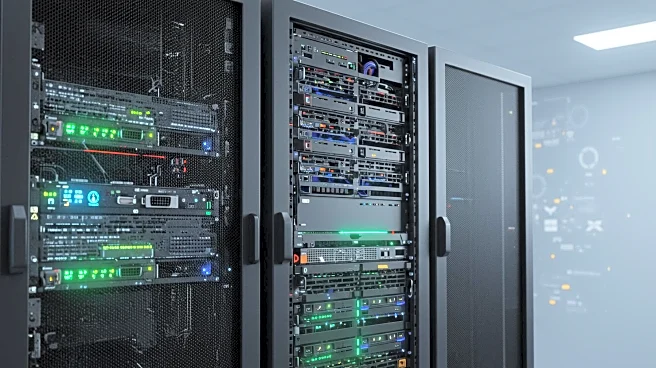What's Happening?
Battlefield 6 developers are responding to player demands for a traditional server browser, a feature that has been largely absent in modern first-person shooter games due to the rise of automatic matchmaking systems. Historically, server browsers allowed players to select matches based on criteria such as player count, ping, mode, and map, fostering community and player choice. The decline of server browsers began with the popularity of Call of Duty's automatic matchmaking, which streamlined the process but reduced player control. Battlefield has maintained server browsers in past iterations, allowing players to create and join custom matches. In Battlefield 6, the server browser will be integrated with the Portal feature, a custom games toolset, but will not include official matchmaking servers. This decision aims to balance player choice with skill-based matchmaking, according to DICE lead producer David Sirland.
Why It's Important?
The inclusion of a server browser in Battlefield 6 is significant for the gaming community, particularly for players who value the ability to create and join custom matches. This feature supports community building and player autonomy, contrasting with the trend towards automatic matchmaking that prioritizes skill-based play. The decision reflects a compromise between maintaining traditional gaming experiences and adapting to modern matchmaking systems. For the gaming industry, this move could influence other developers to reconsider the balance between player choice and automated systems, potentially impacting game design and player engagement strategies.
What's Next?
As Battlefield 6 approaches release, developers will likely continue to refine the server browser feature based on player feedback. The success of the Portal browser in facilitating community-driven matches will be crucial in determining its long-term viability. If players embrace the feature, it could lead to further enhancements and possibly the introduction of persistent servers, allowing for continuous gameplay without lobby disbandment. The gaming community's response will be pivotal in shaping future updates and the potential expansion of server browser capabilities.
Beyond the Headlines
The decision to integrate a server browser within the Portal feature raises questions about the future of community-driven gaming experiences. While it offers a semblance of traditional server browsing, the lack of persistent servers may limit the formation of long-term gaming communities. This development highlights the ongoing tension between player autonomy and automated systems, reflecting broader trends in the gaming industry. The ethical implications of skill-based matchmaking and its impact on player satisfaction and community dynamics remain a topic of discussion.









